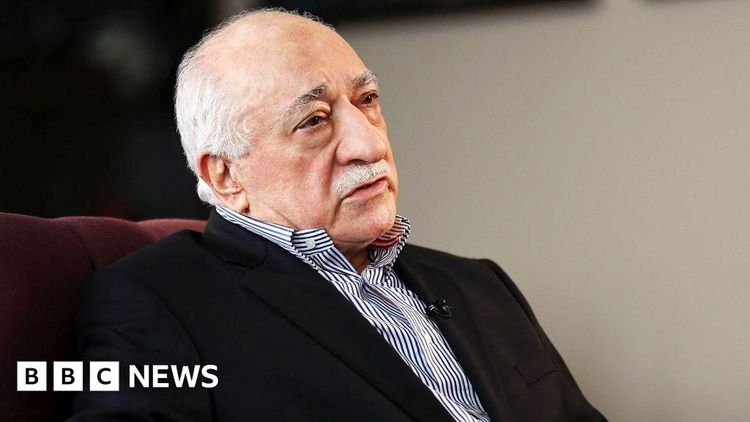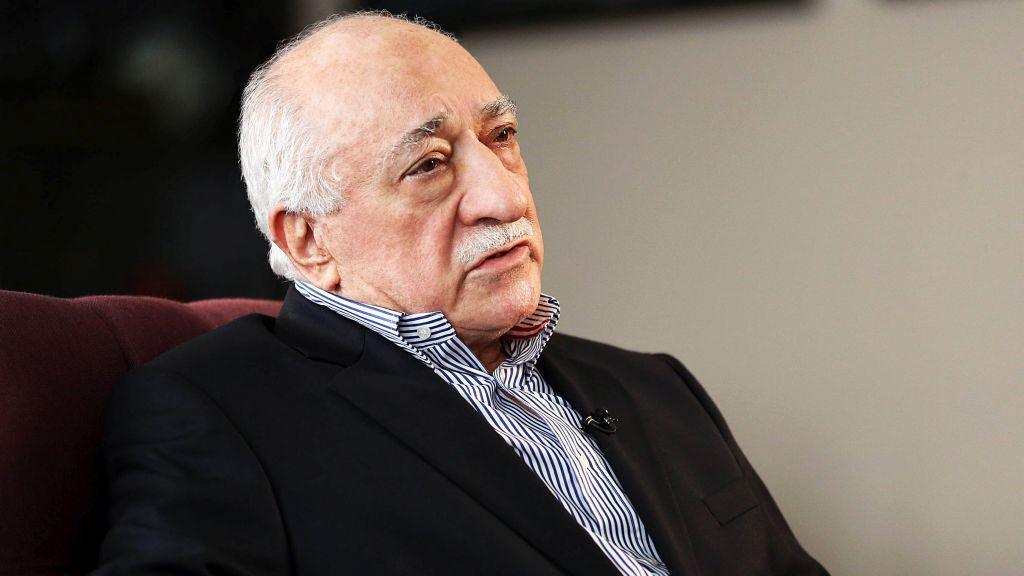Fethullah Gulen: Turkish cleric accused of planning 2016 attempted coup dies

Image credit: Getty Images
Fethullah Gulen, the Turkish religious leader alleged to have orchestrated a violent coup attempt in 2016, has passed away at the age of 83, as confirmed by the Turkish foreign minister.

According to reports from Turkish media, the cleric, who had been living in voluntary exile in the United States, passed away after being taken to a hospital in Pennsylvania.
Often referred to as the second most influential figure in Turkey, Gulen served as the spiritual leader of the Gulen movement, a significant Islamic community with adherents both in Turkey and across the globe.
Turkey's President Recep Tayyip Erdogan accused the Gulen movement of being behind the attempted coup in 2016, a claim that Gulen has rejected.
During a press conference in Ankara, Foreign Minister Hakan Fidan announced that intelligence reports had verified Gulen's death, referring to him as the head of a "shadowy organization."
Gulen gained recognition by claiming that the youth in Turkey were struggling to find their direction, and he believed that education was the most effective solution.
He gained recognition for advocating a version of Islam that highlighted compassion, humility, and diligence.
His initiative, referred to in Turkey as Hizmet or "service," initially made its mark by establishing schools. From there, it expanded to create educational institutions throughout Turkey and internationally.
As the movement progressed, supporters started to branch out into the business sector and began securing positions within the government and military.
Hizmet used to be a supporter of Erdogan, but in 2013, the Turkish president reversed his stance, pledging to close down numerous Hizmet schools and eliminate Gulen supporters from the government, labeling them as a "state within a state."
Police officers connected to Gulen were accused of conducting searches targeting Erdogan's supporters, and in May 2016, the Turkish government officially designated Hizmet as a terrorist organization.
Photo credit: Getty Images
In 2016, military personnel were spotted on the streets of Istanbul amid the failed coup that the government attributed to Gulen's group.
Two months later, a group within the Turkish military tried to depose Erdogan. They claimed their goal was to safeguard democracy from the authoritarian rule of the Turkish president.
Throughout a chaotic night, soldiers stormed TV stations, blasts echoed in Istanbul and Ankara, demonstrators were shot, and gunfire targeted both the parliament and presidential buildings.
However, the coup did not receive backing from the general public or the broader military, leading the faction within the army that orchestrated it to capitulate.
The government accused Gulen of involvement, but he rejected the allegations and spoke out against the coup.
Countless arrests occurred, encompassing nearly one-third of the high-ranking military leaders along with thousands of officials and civil servants.
During a 2014 interview with BBC News, Gulen refrained from using any language that might heighten tensions in Turkey.
At that point, Gulen had been living in self-imposed exile in the United States since his relocation in 1999.
Turkey sought his extradition to go to trial, but the United States indicated that it required proof of his connection to the coup. He stayed in the US until his death.
In 2014, BBC News conducted an interview with Gulen at his secluded property in Pennsylvania.
The cleric was difficult to pin down during the interview and avoided sharing his preferred candidate for the upcoming elections in Turkey.
"If I could offer any advice, I would encourage people to support candidates who honor democratic principles, uphold the law, and build positive relationships with others," he remarked.









































